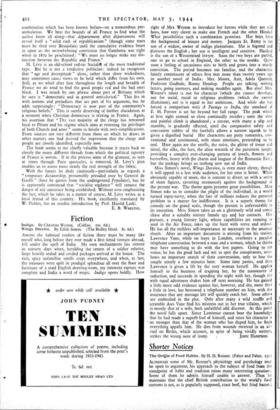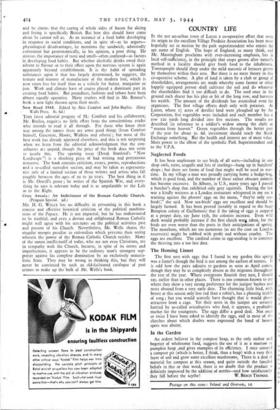Shorter Notices
The Origin of Food Habits. By H. D. Renner. (Faber and Faber. Is.) ALTHOUGH some of Mr. Renner's physiology and psychology may be open to argument, his approach to the subject of food from the standpoint of habit and tradition raises many interesting question;. Some of them he admits himself unable to answer. Thus he maintains that the chief British contribution to the world's food customs is not, as is popularly supposed, roast beef, but fried bacon ;
and he claims that the curing of whole sides of bacon for slicing and frying is specifically British. But how this should have come about he cannot tell us. As an instance of a food habit developing in response to social conditions, and in spite of—as he argues— physiological disadvantages, he mentions the sandwich, admittedly convenient but gastronomically, in his opinion, a poor thing. He stresses the importance of taste and smell—often confused—as factors in developing food habits. But whether alcoholic drinks owed their advent to flavour or to their effect upon the nervous system is again apparently beyond establishment. It is the habit of spreading substances upon it that has largely determined, he suggests, the texture and manner of manufacture of the modern loaf, which is now eaten less for itself than as a vehicle for butter, margarine or jam. Work and climate have of course played a dominant part in creating food habits. But prejudices, fashions and taboos have been almost equally operative. Many readers will find in Mr. Renner's book a new light thrown upon their meals.























 Previous page
Previous page